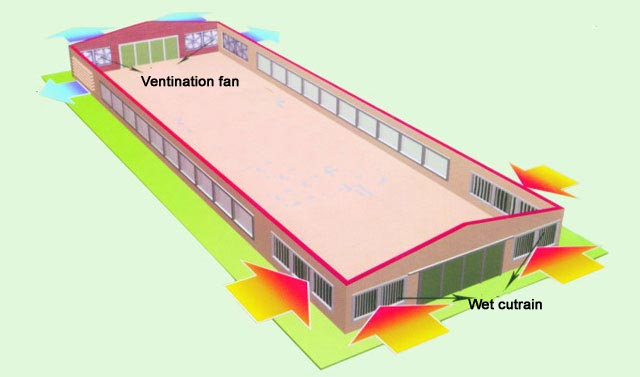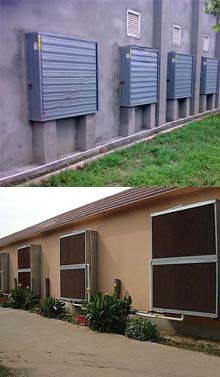The chicken farm environment is crucial to the health and production of the chicken.
The chicken house where the chicken is located is called a chicken breeding environment. The feeding environment is an important influence on the health and productivity of the chicken. Especially for chickens that are intensively raised by large groups, the influence is great. Therefore, in order to make full use of the productive potential of chicken, it is necessary to understand and study the effects of various environmental factors on chickens, and to understand the suitable breeding environment for chickens and their adjustment methods.


The factors that affect chickens as below,
1. Physical factors, such as temperature, relative humidity, air speed, light, dust, air pressure, noise, etc.
2. Chemical factors: such as oxygen in the air and a variety of harmful gases and odorous, volatile compounds, etc.
3. Biological factors: Various microorganisms, mainly bacteria and mold.
The temperature is the major influence factor on the chicken.
(1) Ambient temperature and chicken body temperature regulation
Chicken is a warm-blooded animal. Its heat production and heat dissipation must be balanced. If there is more heat production and less heat dissipation, the body temperature of the chicken will increase; If there is less heat production and more heat dissipation, and the body temperature will drop.
(2) Effect of temperature on chicken production performance
Temperature has an effect on chicken activity, diet, physiological conditions, and various economic traits.
For the layers, the egg production rate is generally higher at 13-15℃. It can maintain a good egg production rate between 10-24℃. Below 4.5℃ or above 29.5℃, egg production drops significantly.
Lower temperatures have little effect on egg weight and shell thickness. In contrast, higher temperatures have an effect on both traits. When the ambient temperature is often higher than 21℃, the eggshell becomes thin; when it is higher than 24℃, the egg weight begins to decrease; the higher the temperature, the more pronounced the drop of the egg weight.
The most suitable ambient temperature for laying hens should be based on economic efficiency. That is, use as little feed as possible to get as many eggs as possible.
It is generally believed that the most suitable ambient temperature for laying hens is 13-23℃.
Copyright © Hebei Baiyu Technology Co., Ltd.
All Rights Reserved
Sitemap